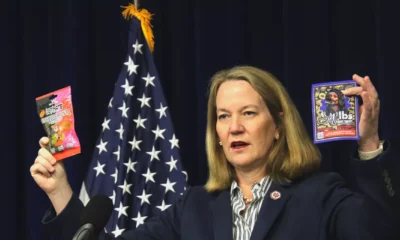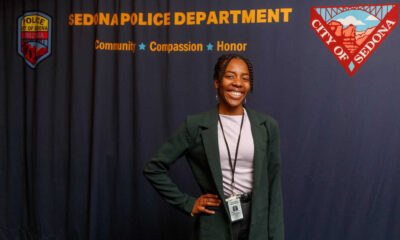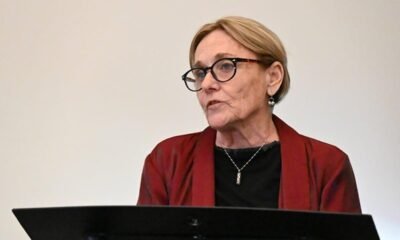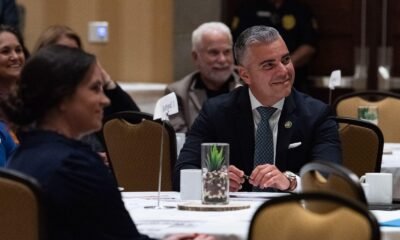Business
‘Our Voice, Our Power’: Indigenous Leaders Celebrate 76 Years of Native Voting Rights in Arizona
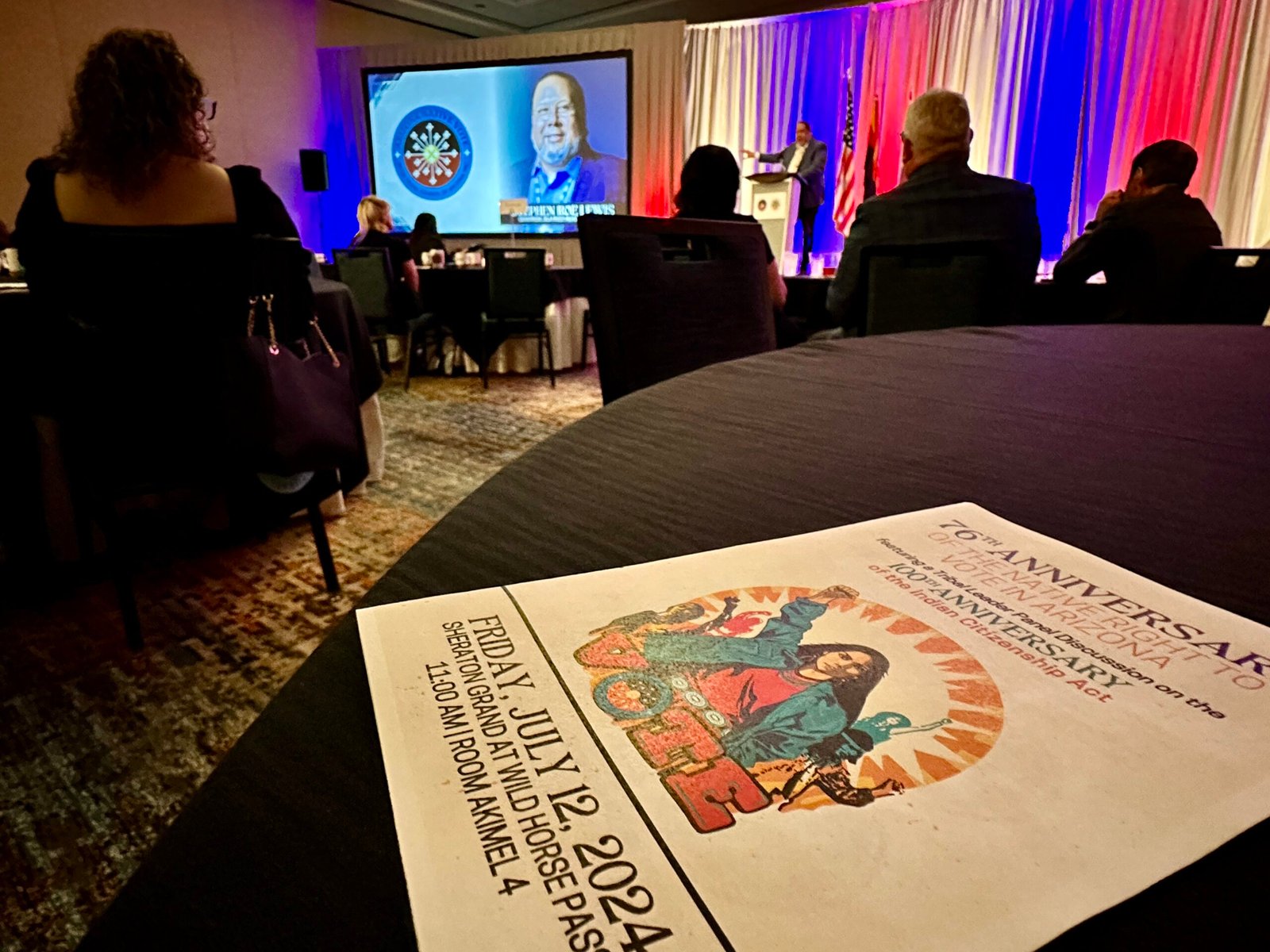
Gila River Indian Community Governor Stephen Roe Lewis emphasizes the importance of remembering and honoring the struggles of Indigenous people who fought for the right to vote. “We’re not celebrating the right to vote,” Lewis remarked. “We are acknowledging and commemorating these important dates in history for our tribes and our tribal members.”
Lewis elaborated that the act of voting carries a deeper significance for the community. It is a recognition of the challenges tribes in Arizona overcame to vote in their homeland. He noted that a simple celebration would be insufficient, given the hardships Indigenous people endured to gain their citizenship and voting rights.
Indigenous people were not recognized as U.S. citizens until 1924, and it wasn’t until 1948 that voting rights were extended to them in Arizona. These monumental events, Lewis asserted, should not be celebrated but respected for the enormous sacrifices made.
To mark the 76th anniversary of Native voting rights in Arizona and the 100th anniversary of the Indian Citizenship Act, the Inter Tribal Council of Arizona and Arizona Native Vote held an event and panel discussion in Chandler. “Here in Arizona, American Indian people have fought a very long and hard political battle to win the right to vote,” said Maria Dadgar, executive director of the Inter Tribal Council of Arizona. “We must remember that our voice is our power.”
Dadgar discussed the mission of the Inter Tribal Council of Arizona, a consortium of 21 Tribal Nations. Their goal is to provide a united voice on issues affecting Tribal Nations, one of which includes encouraging voting and protecting Native voting rights. Arizona has a significant Native voting population, with over 305,000 Indigenous people of voting age.
Arizona’s Indigenous people won the right to vote on July 15, 1948, after a long legal struggle. Gila River Indian Community citizens Peter Porter and Rudolf Johnson filed a suit in 1924 advocating for voting rights, but they were initially denied by the Arizona Supreme Court. It wasn’t until 1948 that Fort McDowell Yavapai tribal members Frank Harrison and Harry Austin succeeded in overturning the ban.
Arizona Supreme Court Justice Levi Udall emphasized the importance of voting as the most fundamental civil right in a democracy. His ruling established the legal right for Indigenous people to vote in the state. Stephen Roe Lewis stressed that the stories of Porter, Johnson, Harrison, and Austin should be remembered to educate current and future generations about their hard-fought victories.
Lewis highlighted that Indigenous people continue to fight for full inclusion even after laws are passed. He pointed out that many proposed laws in Arizona still aim to suppress voters, particularly Native American voters. He reassured that the Gila River Indian Community remains committed to opposing any efforts that restrict the voting rights of tribal members.
Lewis also shared the story of Matthew Juan, a Gila River Indian Community member who fought and died in World War I without being recognized as a U.S. citizen. Juan’s story is a poignant reminder of the continued sacrifices made by Indigenous people. Thousands of Indigenous people served in World War I, but many were not granted citizenship until the passing of the Citizenship Act of 1919.
As part of the event, tribal leaders participated in a panel discussion on Native voting and the Indian Citizenship Act. Salt River Pima-Maricopa Indian Community President Martin Harvier emphasized the importance of educating younger generations about the power of their vote. Harvier pointed out the complex political landscape in which Indigenous communities navigate and stressed the need for informed voting decisions.
“We must ensure that our representatives support Native issues,” Harvier said. “For years, tribal communities have been on the menus; we need to be at the table.” This sentiment echoed the unified resolve among Arizona’s Indigenous communities to protect their hard-won rights and continue advocating for their interests.
